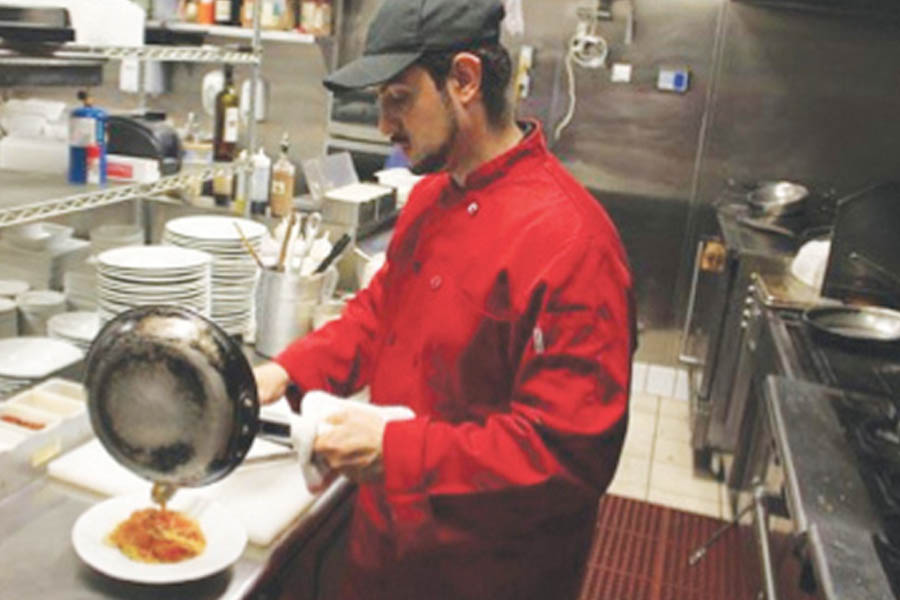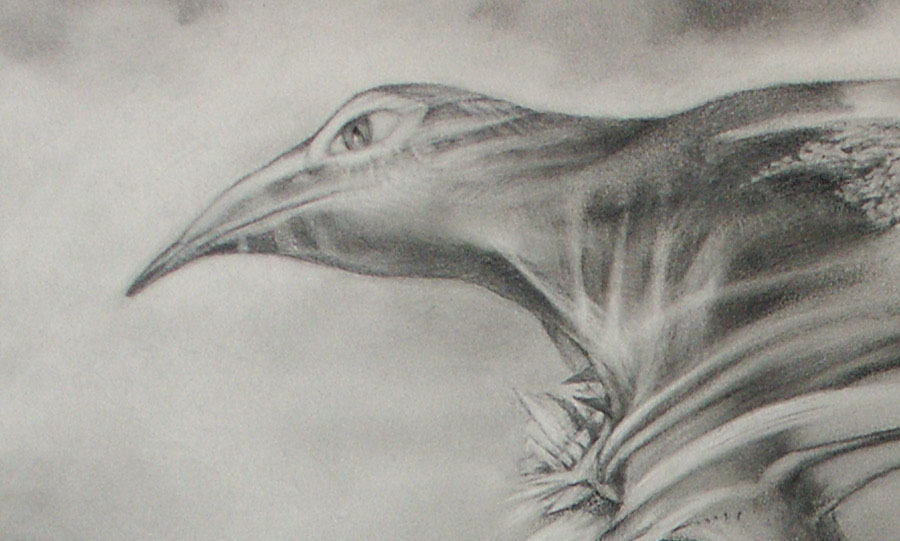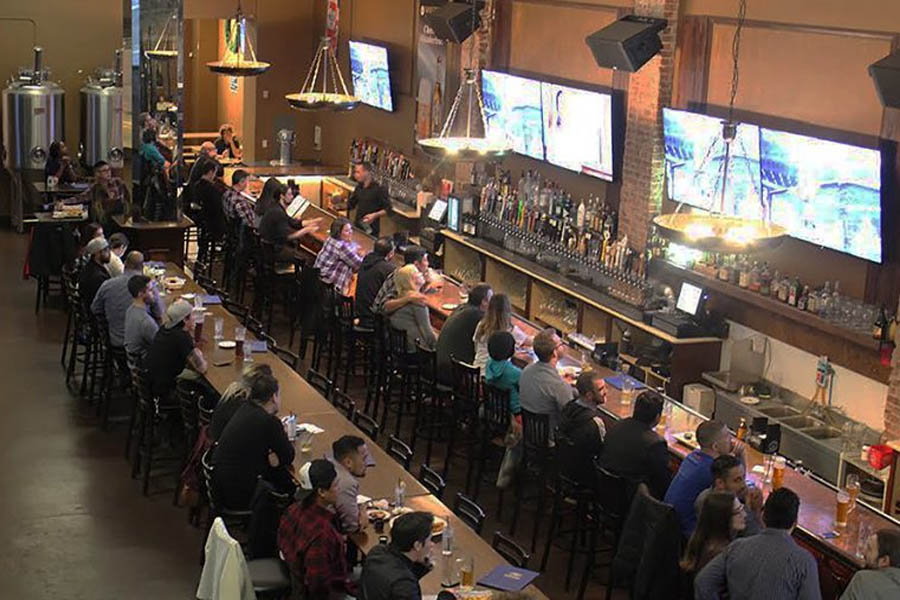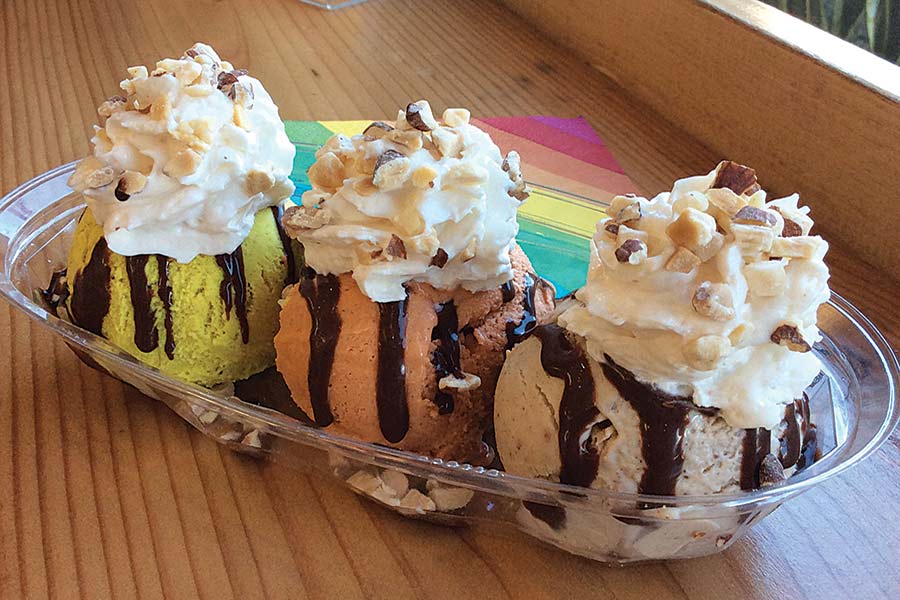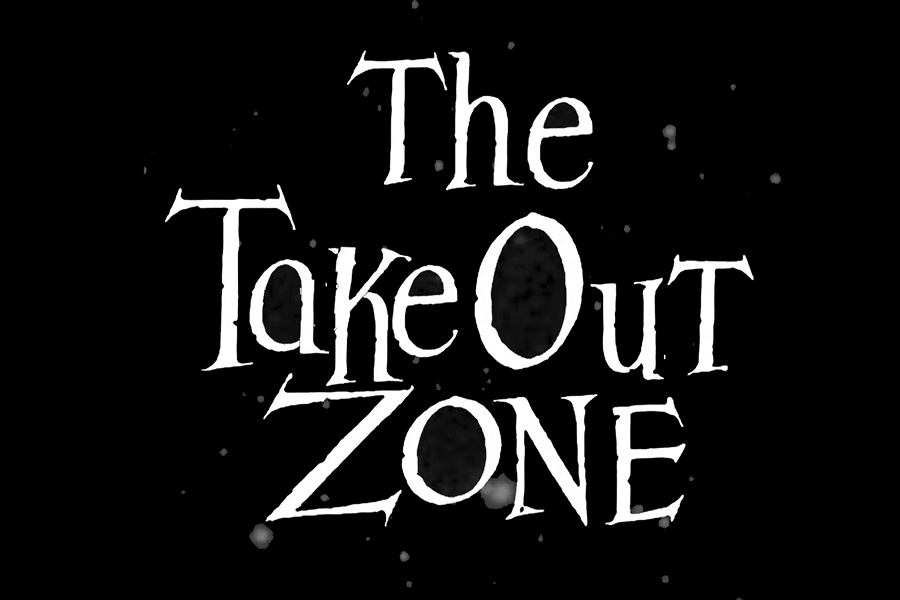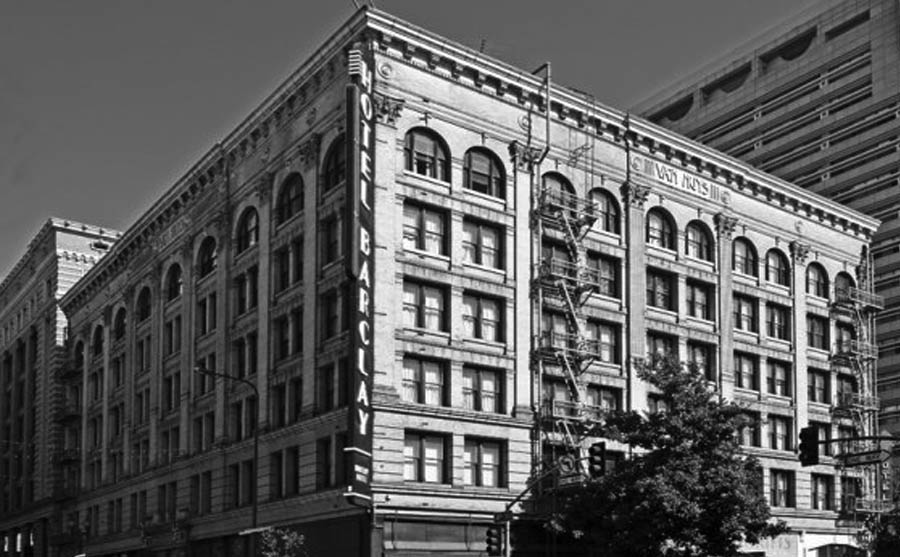
By Charles Lee Hackett
There are magic Brokedown Palaces of sorts towering over the littered sidewalks all over the downtown area. These colossal hulks left over from the glory days of Los Angeles, when a million dollars bought you acres and acres of undeveloped land, still exist in various states of both neglect and renewed splendor. These are the fabulous hotels that used to attract the elite of society, movie stars, millionaires and statesmen.
These grand edifices of yester-year were once the talk of legend. Now most of them don’t offer much except excellent movie locations and history lessons.
My favorite is The Barclay Hotel.
The features of the building are right out of the movie “Chinatown”. Classic old school Los Angeles. If you ever moved here from another city or another town you have to appreciate this kind of place. It is cool. But the place really makes you think.
Built in 1896 by the Van Nuys family, Iassac Van Nuys (SP), by legend, got behind the family machine and The Barclay Hotel was built. Then during the depression someone paid $75.00 for the huge “Barclay Hotel” sign on the side of building. That sign would cost $100,000 these days. People were building great things with little cash back then. We need to remember where we come from. Our ancestors worked so hard and built great things in this country once. This was before unions and vast corporate outsourcing. No, everything about the Barclay Hotel reminds you of misty, romantic times that have long since been washed away.
The building is huge and stately. It was the first high-rise in downtown Los Angeles and it was the first building to have electric power and phones. Some history there kids. The old telephone switchboard is still there, behind the registration desk. Woodrow Wilson, one of our former presidents, stayed there back in the day. It looks like a steampunk contraption right out of a Sherlock Holmes movie. There are hundreds of patches and buttons and nobs and places where cables used to be. Now it is just another reminder of our past.

